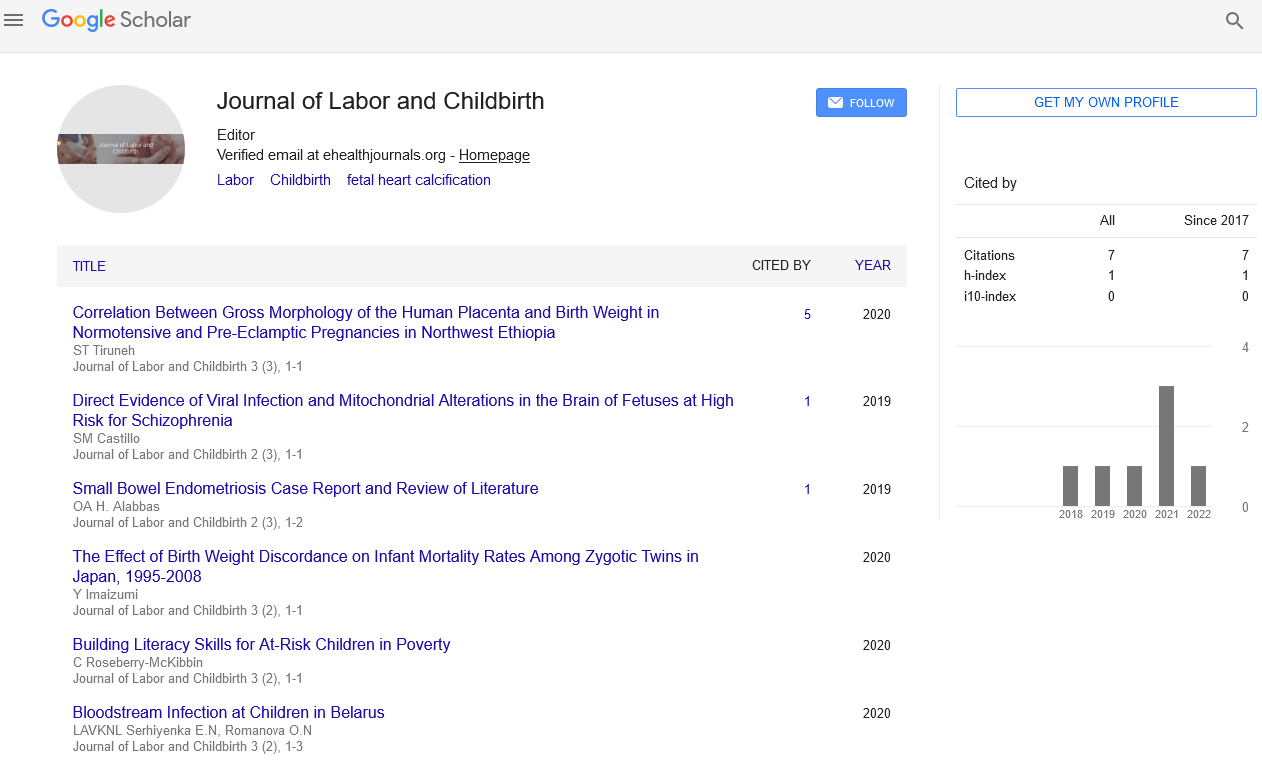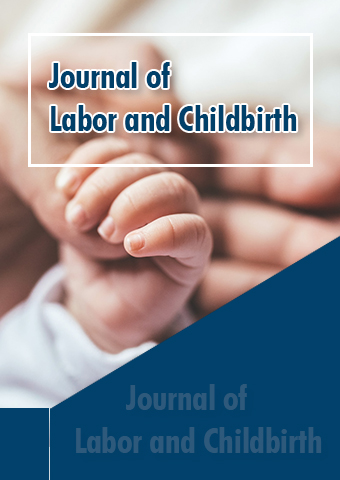Perspective - Journal of Labor and Childbirth (2024) Volume 7, Issue 6
Antenatal Care: Importance, Components and Global Perspectives
- Corresponding Author:
- Erica Schytt
Department of Gynaecology,
GK University of Sciences,
Bodo,
Norway
E-mail: EricaSchytt999@regiondalarna.se
Received: 18-Nov-2024, Manuscript No. jlcb-24-152776; Editor assigned: 21-Nov-2024, PreQC No. jlcb-24-152776 (PQ); Reviewed: 05- Dec-2024, QC No. jlcb-24-152776; Revised: 17-Dec-2024, Manuscript No. jlcb-24-152776 (R); Published: 24-Dec-2024, DOI: 10.37532/jlcb.2024.7(6).280-281
Introduction
Antenatal Care (ANC) is a critical aspect of maternal health that encompasses a wide range of medical, psychological and social services provided to expectant mothers. This care is crucial for ensuring the health and well-being of both the mother and the developing fetus. Proper antenatal care helps in detecting potential health issues early, provides necessary interventions and prepares the mother for childbirth. This article explores the importance of antenatal care, the key components involved and the global perspectives on its accessibility and effectiveness.
Description
Importance of antenatal care
Antenatal care is essential for monitoring the health of the mother and the fetus during pregnancy. It serves several important functions, including:
Early detection of complications: Regular antenatal visits allow healthcare providers to detect and manage potential complications such as gestational diabetes, hypertension and preeclampsia. Early detection of these conditions can significantly reduce the risk of adverse outcomes for both the mother and the baby.
Health education: Antenatal care provides an opportunity for health education, where expectant mothers can learn about pregnancy, childbirth, breastfeeding and newborn care. This knowledge empowers women to make informed decisions about their health and the health of their babies.
Nutritional guidance: Adequate nutrition is crucial during pregnancy to support fetal growth and development. Antenatal care includes guidance on a balanced diet, appropriate weight gain and supplementation with essential nutrients like folic acid and iron.
Key components of antenatal care
Antenatal care involves several key components that together ensure comprehensive care for pregnant women. These components include:
Routine check-ups: Regular visits to a healthcare provider are the cornerstone of antenatal care. These visits typically begin in the first trimester and continue throughout the pregnancy. The frequency of visits may increase as the pregnancy progresses, particularly in the third trimester.
Screening and diagnostic tests: A variety of screening and diagnostic tests are performed during antenatal visits to monitor the health of the mother and the fetus. These may include blood tests, urine tests, ultrasounds and screenings for genetic conditions or infections.
Nutritional counseling: Proper nutrition is vital for a healthy pregnancy. Antenatal care includes counseling on dietary choices, weight management and the use of supplements to prevent nutritional deficiencies.
Global perspectives on antenatal care
The accessibility and quality of antenatal care vary widely across different regions of the world. In high-income countries, antenatal care is generally well-established, with most women receiving regular check-ups and necessary interventions. However, in many low- and middle-income countries, access to antenatal care remains limited, particularly in rural and remote areas.
Challenges in low-resource settings
In low-resource settings, several challenges hinder the provision of adequate antenatal care. These challenges include:
Lack of healthcare infrastructure: In many low-income countries, healthcare infrastructure is underdeveloped, with limited access to trained healthcare providers, medical supplies and facilities. This lack of resources can result in inadequate antenatal care and poor pregnancy outcomes.
Cultural barriers: Cultural beliefs and practices can also impact the uptake of antenatal care. In some communities, traditional beliefs may discourage women from seeking medical care during pregnancy or there may be a preference for home births without professional assistance.
Financial constraints: The cost of antenatal care can be a significant barrier for women in low-income settings. Even when services are available, the financial burden of transportation, medical fees and lost wages may prevent women from accessing care.
Strategies for improving antenatal care globally
To improve antenatal care and reduce maternal and infant mortality, several strategies have been implemented at the global level:
Strengthening healthcare systems: Investments in healthcare infrastructure, including the training of healthcare providers and the expansion of facilities, are essential for improving access to antenatal care in low-resource settings.
Community-based programs: Communitybased programs that involve local health workers and volunteers can help bridge the gap in access to care. These programs often include home visits, mobile clinics and health education initiatives that reach women in remote areas.
Education and awareness campaigns: Public health campaigns that promote the importance of antenatal care can help change cultural attitudes and encourage more women to seek care during pregnancy.
Conclusion
Antenatal care is a vital component of maternal and child health, playing a crucial role in ensuring healthy pregnancies and safe childbirth. Despite the challenges faced in many parts of the world, efforts to improve access to and the quality of antenatal care are ongoing. By addressing barriers and implementing effective strategies, it is possible to enhance the well-being of mothers and babies worldwide, ultimately contributing to the reduction of maternal and infant mortality.

